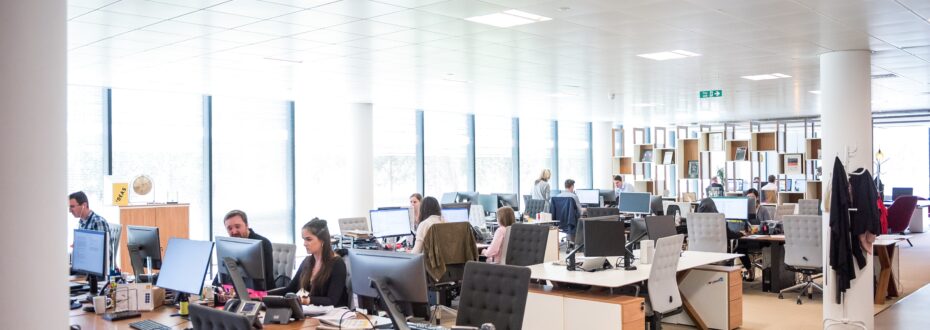By Paris Alexandros Lalousis, Francesca Lewns and Taiwo Hassan Akere
Every year, the University of Birmingham holds a Virtual Consultancy Challenge which provides postgraduate researchers with a virtual training programme and team competition for them to solve a real-life challenge for an industry or charity client. For the 2020 challenge, the ‘client’ was Centre for Mental Health, and the University tasked researchers with finding a policy or practice solution to help small businesses support the mental health of their workers. Poor mental health is a serious and costly problem for employers, and small businesses often fall behind large organisations with respect to mental wellbeing initiatives.
We are three PhD researchers who make up Bloomwise. Our solution was selected as the winning idea by a judging panel, made up of Centre for Mental Health, a solicitor who is Partner and Head of Health & Care at Mills & Reeve LLP, and a lecturer in Mental Health Policy at the University of Birmingham.
We reviewed evidence about what helps to promote mental health at work, as well as the laws, policies, and guidance about mental health and equality in work. We found that undermining managerial style, lack of flexibility in working hours, poor working environment, lack of spare time, and stress are the most commonly reported sources of mental health problems at the workplace.
Centre for Mental Health identified the costs of mental health difficulties to employers: they are estimated at £10.6 billion for absenteeism, £21.2 billion for lost productivity from presenteeism, and £3.1 billion for staff turnover
The Stevenson Farmer Thriving at work report of 2017, which reports that 15% of people in work have mental health problems, is a valuable and underused resource. It highlights that more than 6% of people with long-term mental health conditions lose their job each quarter compared to 4% of those with a physical health condition. And it suggests that the key effects of mental ill health include people being off work sick (absenteeism), people being at work but unable to work effectively (presenteeism), increased workload for the rest of the workforce, increased turnover of the workforce and lack of career progression for people with mental health conditions. Centre for Mental Health identified the costs of mental health difficulties to employers: they are estimated at £10.6 billion for absenteeism, £21.2 billion for lost productivity from presenteeism, and £3.1 billion for staff turnover. The Stevenson Farmer report recommends that all employers of any size in the UK should adopt six “core standards” for improving mental health at work.
By creating a Mental Health Plan, business owners will be demonstrating reliability and commitment to success which will attract investors, partners, and future employees.
As part of our solution, we propose that small business owners can improve the mental wellbeing of their employees through creating a Mental Health Plan (MHP). The MHP will go alongside their business plan, detailing how a business intends to address mental health problems by focusing on the six Stevenson Farmer report core standards. The MHP acts as an early intervention strategy and will set clear objectives, realistic timescales, and prepare contingency plans to address mental health issues. This will have significant positive impacts on the mental wellbeing of the workforce.
By creating a Mental Health Plan, business owners will be demonstrating reliability and commitment to success which will attract investors, partners, and future employees.
The Office for National Statistics found that last year, Britons took 137 million sick days, and of these, 15.8 million were for mental health related issues. The second part of our solution involves a practice that, if implemented within small businesses, could make a big difference. The idea involves providing 24 hours mental wellbeing annual leave (MWAL) per annum – time off work for an employee to manage and address their mental wellbeing. This is separate to both annual leave and sick leave. Instead of introducing this in the conventional ‘X-day’ annual leave format, we are proposing MWAL in hours as this enables employees to split their time and use it when most needed. It will be accepted that the use of this time is personal to individuals, whether this is a half day to catch up on sleep due to high levels of stress, or a couple of hours in an afternoon to visit a doctor, or as a proactive third weekend day to clear up the mind.
The idea involves providing 24 hours mental wellbeing annual leave (MWAL) per annum – time off work for an employee to manage and address their mental wellbeing.
Since the competition’s end, we have contacted key stakeholders and developed the idea further with the aim of bringing the solution to life.
We believe that this solution is workable, ready to be implemented, requires no significant financial investments and has the potential to provide businesses with benefits immediately. If implemented, our solution has the potential to bring significant economic value to small businesses by tapping into the causes of presenteeism and absenteeism. We believe our solution could become a gold standard in the implementation of business plans across the country, as well as increasing mental health awareness in the workplace.






